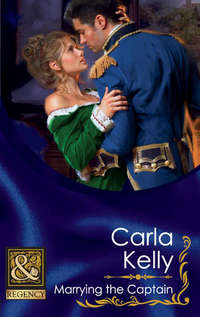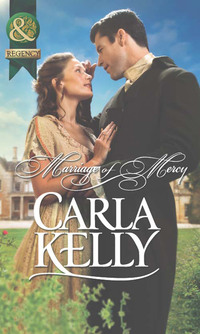
Полная версия
Regency Christmas Wishes: Captain Grey's Christmas Proposal / Her Christmas Temptation / Awakening His Sleeping Beauty
Owen was right about the shepherd’s pie, which had the odd facility of both filling his stomach and loosening his tongue, although that could have been the fault of the ale. A fast eater from years of necessity, he decided to ask Owen’s advice about the letter, while the surgeon served himself another helping.
‘Here I am, the proud possessor of a letter in which a young woman I love, or at least loved, accepted my proposal,’ he concluded. ‘I’m curious to know how she has fared through the years.’
‘You say she is pretty.’
‘Quite, but that’s not the half of it. She was so kind to me.’
Even now Jem clearly remembered the loveliness of Teddy Winnings’ creamy complexion, and the deep pools of compassion in her eyes at first, followed a few weeks later by lively interest when he was coherent and—he hoped—charming. Young he may have been, but he was a gentleman. He had known he was enjoying the company of a young lady properly raised, and behaved himself.
‘Her father ran Winnings Mercantile and Victuallers, a few doors down from the hospital and convent,’ he told Owen Brackett. ‘It was a substantial business, and I imagine she had plenty of young men interested in her.’
‘She’s likely long-married,’ Owen said.
‘Aye.’ He hesitated to say more so Owen filled in.
‘But you’re going to cross the Atlantic and find out, aren’t you?’ the surgeon asked.
There it was, laid out before him, the very thing Jem wanted to do. Owen knew.
‘Better see a tailor right away and get yourself a civilian wardrobe,’ Owen said as he stood up and held out his hand.
Jem shook his hand. ‘Don’t tell anyone. I’m ashore on half pay, but I’m not certain Admiralty House would be happy.’
‘Why not?’ Owen asked as they headed to the main floor again. ‘We’re at peace, and that unpleasantness with the colonies is long over.’ He took a good look at Jem. ‘You want to go back, don’t you, and not just for Miss Winnings.’ It was a statement, not a question.
‘I don’t know what I want,’ Jem replied frankly. ‘I liked living in Massachusetts Colony, but when you’re ten years old and your parents pull all the strings...’ He shrugged. ‘Don’t say anything.’
‘I’ll be as silent as an abbey of Trappist monks,’ Owen assured him. ‘Bon voyage, friend. Let me know at what longitude your jaw ache ends.’
James took himself to his tailor in the Barbican, who opened his ledger to Jem’s previous measurements and congratulated him on maintaining an enviable trimness.
‘It’s easy enough to do in southern latitudes, when you sweat off every ounce of fat,’ Jem said.
Of nightshirts and smallclothes he had an adequate amount. Shoes, too. He assured his tailor that three suits of clothes would suffice, and he could use his navy boat cloak. He reconsidered. As much as he loved the thing, one look would give him away immediately as a member of the Royal Navy, which was perhaps not so wise. He could store his Navy uniforms with Mrs Fillion.
His order complete and promised in two weeks, Jem went next door for a low-crowned beaver hat which struck him as faintly ridiculous, even though the haberdasher assured him he was now à la mode. He knew he was going to miss the added intimidation of his tall bicorn, but as Teddy Winnings had told him once—how was it he was starting to remember their conversations?—he was already tall enough.
He paid a cautious visit to the harbourmaster to inquire about any outbound ships headed for the United States. He knew the harbourmaster as a garrulous man. To his surprise, George Headley didn’t even blink when he mentioned wanting passage to a former enemy country.
Headley leaned closer. ‘This is a special mission, isn’t it?’ he whispered. ‘My lips are sealed, of course.’
‘Good of you,’ Jem said in the same conspiratorial tone, hoping the Lord Almighty wouldn’t smite him dead for deceiving a good, if chatty, man. ‘The less said, the better my chances are that none of Boney’s spies will hear.’
The harbourmaster nodded, his eyes grave, and gestured toward a fair-sized vessel at anchor in the harbour. ‘Captain, the Marie Elise is headed to Baltimore, I believe. Would you like me to hail a waterman to take you out there?’
A mere half hour later, he sat in the captain’s cabin, drinking Madeira and then forking over passage money.
‘We’ll sail for Baltimore on or about the middle of October,’ Captain Monroe said. ‘We’re looking at a seven-week passage, give or take.’ The Yankee gave Jem a shrewd look. ‘You’re a seafaring man.’
‘I am,’ Jem said. ‘Royal Navy. It’s private business.’
The captain nodded, obviously not believing a word of that, and sounded remarkably like the harbourmaster. ‘My lips are sealed. You’ll only be a short distance from Washington, D.C. How is it you already sound slightly American?’
‘Many people on the Devonshire coast have a similar accent,’ Jem hedged, ‘but you are right. I was born in the colony of Massachusetts.’
‘We two countries need to get along, eh?’
‘Indeed we do. I’m lodging at the Drake. Send a boy around when you’re ready to lift anchor,’ Jem said.
‘You’ve been away a long time from Massachusetts?’ Captain Monroe said as he walked topside with a fellow captain, showing him all the courtesies.
‘Twenty-seven years,’ Jem replied, as he sat in the bosun’s chair to be swung over the side to his waiting boat. He wouldn’t have minded scrambling down the chains, but he couldn’t ignore the American captain’s kindness.
‘A lot has changed, Captain,’ the Yankee said as he motioned for the crew to swing him over now.
I hope not everything. Or everyone, Jem thought as he went over the side and waved to his American counterpart. Is it too much to hope that Theodora Winnings remains the same?
Chapter Three
James made a note in his log—personal logs were a habit not easily broken—to let Owen Brackett know when next they saw each other that his jaw stopped aching at Latitude North thirty-eight degrees, four minutes, Longitude West forty-eight degrees, forty-six minutes, roughly the middle of the stormy Atlantic.
The passengers aboard the Marie Elise were a disparate lot, some Americans heading home, a French emigré or two and Englishmen who were no more forthcoming about their reasons to travel than he was. He had a private chuckle, thinking that some of them might have been what the harbourmaster thought of him, spies or government emissaries.
The crossing was rough enough to keep many of the passengers below deck during the early days of the voyage. Jem had no trouble keeping down his meals, and less trouble standing amidships and looking at oily, swelling water hinting of hurricanes.
He only spent two days in the waist of the ship before Captain Monroe invited him to share the quarterdeck. Jem accepted the offer, scrupulously careful to stay away from Captain Monroe’s windward side. From Monroe’s demeanour, Jem knew the Yankee appreciated the finer points of quarterdeck manners.
Captain Monroe apologised in advance for some of his passengers. ‘Hopefully they’ll stay seasick awhile and not pester you with gibes about Englishmen who couldn’t fight well enough to hang on to the colonies.’ He laughed. ‘And here I am, making similar reference!’
‘I’ll survive,’ Jem said, and felt no heartburn over the matter. ‘We need to maintain a friendship between our countries.’
‘From what you tell me, the United States might be your country, too,’ Captain Monroe pointed out. ‘D’ye plan to visit Massachusetts during this visit?’
‘Perhaps. We’ll see.’
Mostly Jem watched the water, enjoying the leisure of letting someone else worry about winds and waves, especially when it proved obvious to him that Captain Monroe knew his ropes. He felt not a little flattered when Lucius—they were on a first-name basis soon—asked his opinion about sails and when to shorten them.
Even better than the jaw ache vanishing was the leisure to recall a much earlier trip in the other direction. He stared at the water, remembering that trip when he was ten years old; he’d been frightened because so-called patriots had torched the family’s comfortable Boston house. He remembered his unwillingness even then to leave the colony where he had been born and reared and now faced cruel times.
Looking around to make certain he was unobserved, Jem leaned his elbows on the ship’s railing, a major offense that would have sent one of his midshipmen shinnying up and down the mainmast twenty times as punishment. Most painful had been his agonized goodbye to his big yellow dog with the patient, sorrowful eyes and the feathery tail always waving because everyone was a friend. ‘I want another dog like you, Mercury,’ he said quietly to the Atlantic Ocean.
Papa had named Mercury, because he was the slowest, most good-natured creature in the colony, even after some Sons of Liberty rabble caught him, tarred and feathered him. If Jem’s tears could have washed the tar away, Mercury would have survived. He never asked Papa how he put Mercury down, but at least his pet did not suffer beyond an hour or two.
Here he stood, a grown man of some skill and renown among his peers, melancholy over a long-dead dog. As with most complicated emotions that seem to surface after childhood is gone, James wasn’t entirely sure who the tears were for.
Contemplating the water through many days of the voyage, Jem found himself amazed at his impulsive decision to bolt to the United States, after reading a mere scrap of a decade-old letter. He knew himself to be a careful man, because he understood the monumental danger of his profession and his overarching desire to see all the officers and seamen in his stewardship as safe as he could make them. Quick decisions came with battle, but this hasty voyage had been a quick decision unrelated to war.
In the cold light of this Atlantic crossing, he justified himself, convinced that the Peace of Amiens, while a fragile treaty, would last long enough for him to make sure all was well with Theodora Winnings and return with Admiralty none the wiser.
Or so he thought. Anything seemed possible, now that his jaw didn’t ache all the time and he was sleeping eight hours instead of his usual four. Until this voyage, he had forgotten the pleasure of swinging in a hammock and reading.
As the journey neared its end, he spent a pleasant evening in Lucius Monroe’s cabin, drinking a fine Madeira; maybe he drank too much. However it fell out, he told the Yankee skipper about Theodora Winnings and the long-delayed letter.
‘Am I a fool for this expedition?’ he asked Lucius.
‘Probably,’ the Yankee replied. ‘She helped nurse you back to health from a malaria relapse?’
‘Aye, she did. I was a stinking, sweating, puking, pissing, disgusting mess.’
‘Then it must be love,’ Lucius Monroe joked. ‘More?’
Jem held out his glass. ‘I never had the courage to ask her why she was even there. There were other women in the ward besides the nuns, but they were all slaves.’
‘Who can understand the ladies?’ Lucius said. He leaned back and gave a genteel burp that he probably would have apologised for a few weeks earlier, before theirs turned into a first-name acquaintance.
Lucius broke the comfortable silence. ‘I’ve been curious about this since you came aboard, James. You tell me you were born in Massachusetts Colony and spent your first decade in my country. How do you feel about it now?’
‘I liked Massachusetts,’ he said finally. ‘I liked the dock people who didn’t mind my chatter, and my friends who took me fishing. My father was next in authority after Benjamin Hallowell, Senior, then serving as Admiralty High Commissioner. Papa let me roam all around the docks.’
He saw by the way the American nodded, that his own childhood had been spent much the same way. ‘You understand, Lucius, don’t you? There is a freedom here that I cannot explain or understand.’
‘Did you come back for another glimpse of that, or of Miss Winnings?’ Captain Monroe asked.
‘I wish I knew.’
* * *
When the Marie Elise docked in Baltimore, James walked down the gangplank, took a deep breath of United States’ air, realised it smelled the same as it did in Plymouth, and laughed at himself. With instructions from Captain Monroe, he arranged passage on a coasting vessel to Charleston, South Carolina.
After an evening of good food with Captain Monroe at the curiously named The Horse You Came In On Tavern at Fell’s Point, and a night at the inn next door, James boarded the Annie, a vessel that deposited him in Charleston a day and a half later, none the worse for wear, even though the vessel was less sound than he liked and the crew even more dubious.
He had stuffed his effects in his old sea bag, which still naturally fit the curve of his shoulder. After a short walk, spent trying to divest himself of the seagoing hip roll, he stood in front of the Magnolia Tavern and Inn, took a deep breath and wondered again what he was doing.
He didn’t bother with luncheon. After dropping his duffel in his room that overlooked magnolia trees with their heady blooms, he walked the route from the dock to Winnings Mercantile and Victuallers. At least, he walked to where it should have been, and stared up at a swinging sign that read South Carolina Mercantile. He reminded himself that things change in eleven years, and opened the door.
The smells remained the same—dried cod, pungent tobacco, turpentine. Jem fancied he even recognised the man behind the counter, a fellow with an outmoded wig and a big nose.
‘May I help you?’ the man behind the counter asked.
Jem relished the soft sound of his speech, wondering how it was that an English-speaking people not so long removed from the British Isles could sound so different. When he was coherent, he had asked Teddy Winnings about that. She had reminded him that African slaves had much influence in the language of the Carolinas.
‘Perhaps you can help me, sir,’ he asked. ‘I came into port here some eleven years ago, when this place was the Winnings establishment. What happened?’
‘Mr Winnings died of yellow fever and his widow sold the property to the current owner,’ he replied.
That was a fine how-de-doo. Now what?
‘Where do the widow and her family live now?’ he asked.
The counter man shrugged. ‘She didn’t have any family. Don’t know where she is.’
‘No family? I distinctly remember a daughter,’ Jem said. Who could ever forget Theodora Winnings and her quiet, understated loveliness? Obviously he hadn’t.
‘No. No daughter.’ A pause. ‘Where are you from, sir?’
‘Nowhere, I suppose,’ Jem said, surprised at himself. ‘I am a ship captain.’
‘From somewhere north?’
‘At one time. No idea where the widow is?’
The shop’s front bell tinkled and three men came in. The man at the counter gave Jem a polite nod and dismissed him. ‘Sirs, may I assist you?’
Jem took the hint and left the mercantile. He stood a brief moment on the walkway, then turned south, confident the Sisters of Charity hadn’t left their convent.
There it was, much the same. He recalled ivy running over the walls, but someone had mentioned a hurricane years ago that had stripped some of it away. The Virgin smiled down at him from her pedestal perch, reminding him of his first view of the statue while lying on his back on a stretcher. With some embarrassment, he remembered shrieking like a girl because she seemed to be falling on him. Oh, those malaria fever dreams.
He rang the bell and waited for quiet footsteps on the parquet floor within. He never prayed much, if at all, but he prayed now that someone would know where Theodora Winnings lived. He squared his shoulders to face the reality that if Mercantile Man said Widow Winnings had no children, then Teddy might be dead, too.
‘Don’t disappoint me,’ he said out loud, not sure if he was trying to exert his non-existent influence on God Almighty, or the world in general, which had been stingy with blessings, of late. He remembered himself and thought, Please, sir, that and no more.
Before he could ring the bell again, the door opened on a young face, probably one of the novitiates. In her calm but practical way, Teddy had told him that every yellow fever epidemic meant more young girls in the convent because they had nowhere else to go.
‘Sir?’ she asked.
He took off his hat. ‘I am looking for Theodora Winnings, who used to assist here. Her father owned what is now South Carolina Mercantile. Can you help me?’
She opened the door and he stepped into the familiar coolness that had soothed his fever almost as much as the mere presence of Teddy sitting by his bedside, doing nothing more than holding his hand.
‘I will take you to our Abbess, sir,’ she said. ‘Please follow me.’
He walked beside her down the long hall, breathing in the faint odour of incense and something sharper that still smelled of disease and contagion. Underlying it all was the still-remembered rot of a warm southern climate.
The novice knocked on a carved door, listened with her ear to the panel, then opened it. She stepped inside and motioned for him to wait.
He stood in the hallway during the quiet conversation within, then entered the room when the nun sitting behind the desk gestured to him. The novice glided out quietly.
The nun behind the desk indicated a chair. She clasped her hands on the desk and wasted not a moment on preliminaries.
‘I have not thought of Theodora Winnings in years,’ the nun said. ‘Apparently you have, sir.’
He could blush and deny, but he was long past the blushing stage of his life. ‘I have, Sister... Sister...’
‘Mother Abbess,’ she corrected. ‘And you are...’
‘Captain James Grey of His Majesty’s Royal Navy.’
With that announcement, she gave him a long look, one that came close to measuring the very smallclothes he sat in, down to his stockings. ‘I remember you, sir. We despaired of your survival for several weeks.’ She permitted herself a smile. ‘Even your ship sailed away.’
‘With a promise to return,’ he reminded her. ‘Aye, you have me. I didn’t think I would live, either. At times, death sounded almost welcome.’
She chuckled, probably all the emotion her order was capable of permitting. ‘Teddy held your hand when we had done all we could.’
It was his turn and he took a page from her no-nonsense book. ‘I doubt you knew this, but I left her a letter the morning I walked out of here under my own power to rejoin my frigate. I proposed marriage in that letter, but I never heard from her. I want to know how she is. That’s all. The man at the mercantile said Widow Winnings had no children, but that can’t be right. Where is she?’
Only an idiot wouldn’t have noticed that he had disturbed the serenity of a woman probably committed by oath to be calm in all matters. She stood up quickly and turned her back on him to stare out the window.
‘If she’s dead, I understand,’ he said. ‘I want to let her know I would have moved heaven and earth to respond, had I known of her letter’s existence. Her letter was misplaced and I only received her reply in September. Granted, eleven years is a long time...’
He let his voice trail away. He knew enough of people to tell, even with her back to him, how upset Mother Abbess was. ‘I had good intentions,’ he insisted. ‘I proposed, after all.’
She turned around. ‘You don’t understand.’
‘Understand what?’ he asked, fearful and bracing himself for what, he had no idea. ‘Mrs Winnings must have had children. Teddy was one of them.’
‘Teddy is a slave.’
Chapter Four
‘Shame on her for not telling you,’ Mother Abbess said as she sat down.
Astonished, Jem couldn’t speak. He took Teddy’s battered letter from his inside coat pocket and spread the paltry thing on the nun’s desk. He stared at the few legible words through new eyes. ‘But you need to know...’ suddenly made sense. So did, ‘I should have...’ farther down the page.
‘She didn’t come here of her own free will, just to be kind?’ he asked, perfectly willing to ignore obvious evidence, even though he understood the shamble of a letter now. I want to see her anyway, kept bouncing around in his brain. ‘Maybe?’
‘No, sir. During fever times, and when we ask, some of the better class of ladies send their slaves here to help.’ She made an offhand gesture. ‘They’re just slaves. If something happens to them...well, you understand.’
‘No, I don’t,’ he said, uncertain if he were more angry or more appalled at her words. He closed his eyes, which was the only way he could glimpse Theodora Winnings’ ivory skin. True, her hair was curly and her lips full, but God above, he had curly hair, too. ‘She’s so fair-skinned.’
‘So was her mother, but by half,’ the abbess said. ‘Roxie was a house slave and a great beauty. If memory serves me, Roxie was the daughter of a plantation owner and another slave. I assume Mr Winnings fancied her and bought her for his own purposes. Theodora was their child, with a quarter African blood, therefore not so noticeably of African descent. It happens all the time.’
Mother Abbess’s callous appraisal caused the growing gulf between them to yawn wider by the second. They sat in the same small room, worlds apart. Jem did his best to control the complicated emotions beginning to pinch at his heart like demons from a painting he had seen in a Spanish monastery, thrusting pitchforks into some saint or other.
‘I like sailing the oceans,’ he said finally. ‘The thing I hate the most is patrolling the Middle Passage where we sometimes encounter slave ships.’
He watched her eyes, in his dismay pleased to see some of the complacency in them disappear. ‘They stink to high heaven. I have never seen more wretched people, thirsty, starving and chained below decks. Mothers holding their dying babies up to me, as if I could help them. God, it chafed my heart.’
Her face was still serene, but she rattled the beads on the rosary that hung from her waist. ‘Why are you telling me this?’ Mother Abbess asked.
‘I don’t know,’ he said. ‘Should Teddy have said something earlier? I mean before I fell in love with her, because fall in love with her I did.’
‘Certainly she should have told you,’ the nun said with some vigour. ‘More shame to her and good riddance.’
‘If you were a slave and you saw a way out of this...this... I don’t know what... Would you have said something?’ He asked, irritated that his voice was rising.
Silence. The beads rattled louder.
Jem went to the door, eager to leave the suddenly stifling office. ‘Can you...or will you...at least tell me where Mrs Winnings took her household, after her husband died and she sold the business?’
Perhaps Mother Abbess saw he was in complete earnest. She joined him at the door to her office. ‘Some slaves were sold at auction. Others went with Mrs Winnings to Savannah, where she was from. It was years ago. I doubt any records remain. Leave it alone.’
‘I have the time,’ he heard himself say. ‘I also have the means and the inclination. Good day. Thank you for your ministrations to me eleven years ago. I do owe you for that.’
She opened her mouth to speak, but Jem had no desire to hear another word. He outdistanced the novice who had seated herself in the hall, and had the satisfaction of slamming the front door hard.
On the other side of it, he shook his head at his own childish behaviour and took a deep breath, which brought a whiff of the harbour, and tar, and the sugary fragrance of gardenias, in bloom in December.
He stood there in front of the convent, angry at himself and wondering if he had wilfully overlooked signs of Teddy’s parentage. In Italy and Greece he had seen lovely women with cream-coloured skin like hers. Had he assumed she was of Mediterranean extraction? He looked down at his feet, distressed with himself. Did it even matter? He loved Theodora Winnings.
What now, you idiot? he asked himself, as uncertain as he had ever been in his life. A man across the street was scrubbing steps leading up to a modest house, and children were jumping rope beyond the servant. Jem had the distinct feeling he was being watched so he turned around slowly, and laughed at his folly. It was the statue of the Virgin looking over him.







